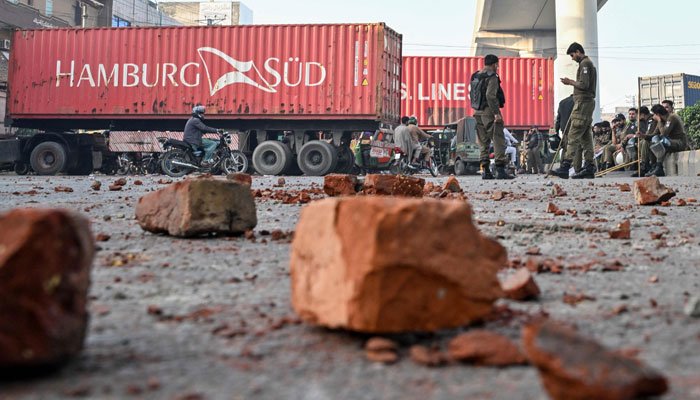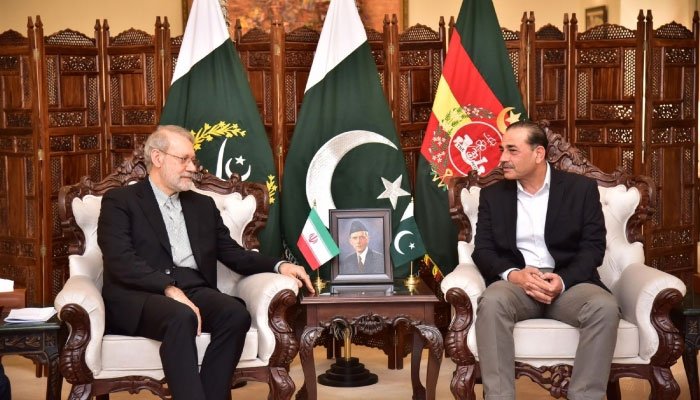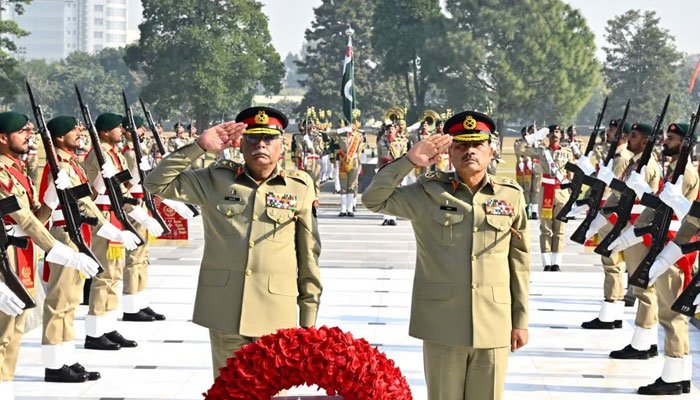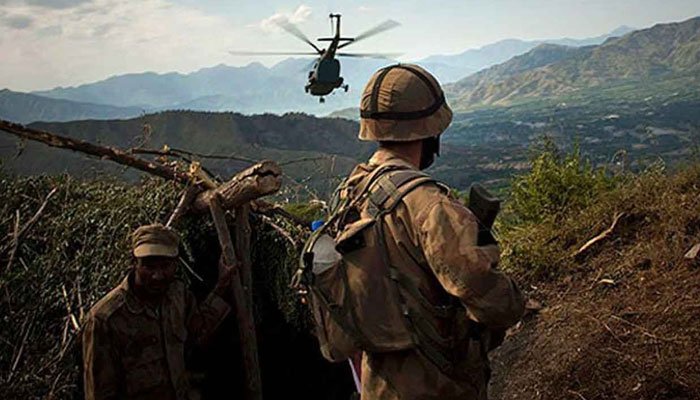Major roads, internet services & educational institutions remain closed in twin cities.
TLP Protest Brings Islamabad, Pindi to Standstill for Second Day. Day-to-day life in Islamabad and Rawalpindi remained severely disrupted for the second consecutive day on Saturday, following a protest call by Tehreek-e-Labbaik Pakistan (TLP). Major roads and internet services remained suspended, cutting off communication and movement across the twin cities.
On November 8, 2017, TLP staged a sit-in at the Faizabad Interchange to protest against the amendments made to the Election Act 2017, which changed the word “oath” to “declaration.”
In November 2023, the Supreme Court firmly rejected the government’s fact-finding committee; consequently, criticism of its handling grew.
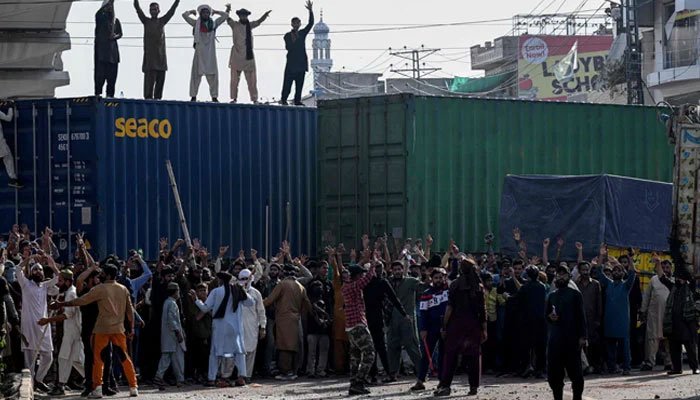
The Faizabad Interchange, a critical link between Rawalpindi and Islamabad, was sealed off with shipping containers. Several other key routes-including IJP Road, Khanna Pul, Kuri Road, and Dhoke Kala Khan—were also completely blocked.
Abbasi Questions TLP’s Protest Timing
Former Prime Minister Shahid Khaqan Abbasi questioned why Tehreek-e-Labbaik Pakistan (TLP) suddenly decided to protest after two years of silence. He pointed out that the protests came even though Hamas and Israel had reached a peace agreement. Abbasi criticized TLP for not raising their voice when Gaza was burning and asked who benefits from the current unrest caused by their actions.
Red Zone Sealed; Airport Access Restricted
The Islamabad administration sealed the Red Zone by placing containers around D-Chowk, while roads leading to Islamabad International Airport were closed. A ban on the entry of heavy vehicles into Rawalpindi was also enforced.
Metro Bus service between the two cities has been suspended due to security concerns. Educational institutions remained closed, and restaurants and hotels in the Faizabad area were also sealed by authorities.
Internet Shutdown Hits Businesses and Residents
Mobile internet services were suspended in several parts of Islamabad and Rawalpindi for a second day, leaving businesses paralyzed and residents frustrated. Many users complained of being unable to access basic services, banking apps, or communicate with family members.
Security on High Alert Under Section 144
Heavy police contingents were deployed at Faizabad, a site with a history of religious sit-ins. The authorities also imposed Section 144 across Punjab, banning public gatherings and the display of weapons.
The federal government has taken preemptive security measures ahead of a possible march toward the capital, called by the Saad Hussain Rizvi-led TLP.
Government: “No Blackmail by Mobs”
Minister of State for Interior Talal Chaudhry said the government is pursuing peaceful means to prevent the TLP’s march but warned that it “will not be blackmailed by mobs.” He accused the party of exploiting religious sentiment for political gain and pointed to past incidents of violence and damage to public property.
Chaudhry questioned the rationale behind the protest, stating:
“The main party to the issue is the Palestinians, and they are celebrating the recent peace deal in Gaza.”
It is pertinent to mention that the inquiry commission, constituted to investigate the Tehreek-e-Labbaik Pakistan (TLP) sit-in staged at Faizabad Interchange in Islamabad in 2017, has given clean chit to former spy chief Faiz Hameed.
TLP’s History of Disruptive Street Power
TLP has repeatedly demonstrated its ability to paralyze cities through mass protests and sit-ins. Its past movements have focused on:
- Blasphemy-related controversies
- Demands to expel foreign envoys
- Calls for the release of detained leaders
- Accusations of government compromise on Islamic values
These protests typically include road blockades, large gatherings, and confrontations with law enforcement.
High Cost to Public & Economy
The group’s demonstrations have shut down transport networks, closed businesses, and disrupted education. Residents often face difficulty accessing hospitals or workplaces. Economic losses during such shutdowns can reach millions, particularly in urban centers like Islamabad, Lahore, and Karachi.
Conclusion: An Ongoing Challenge
As of now, the situation remains tense. Authorities are trying to avoid escalation, but with major routes sealed, services down, and schools shut, the disruption is already being widely felt.
TLP continues to be a significant challenge for the state — one that tests the balance between public order, freedom of expression, and political negotiation.

